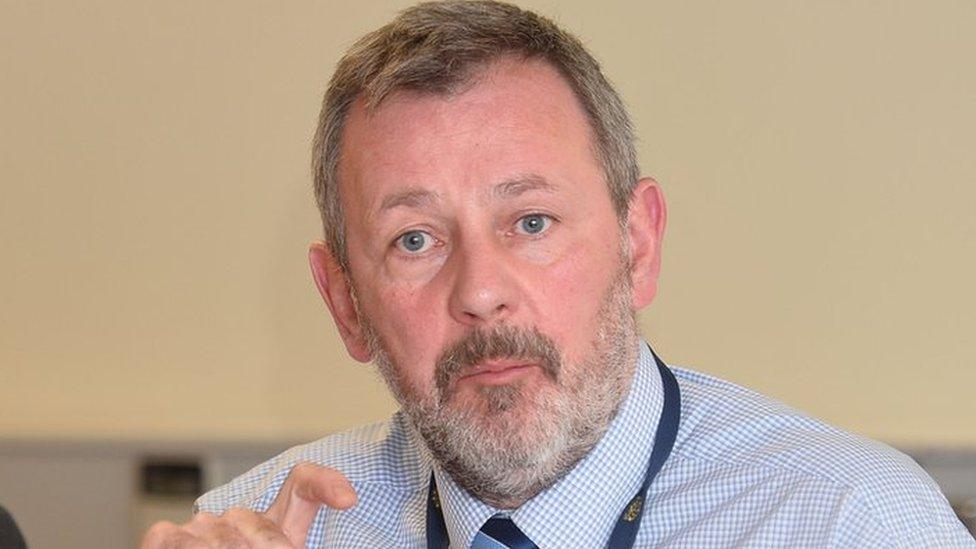Muckamore: Mum urges end to long-term hospital care
- Published
'Graham started to laugh and smile again'
The mother of a man who went into Muckamore Abbey Hospital for two weeks but ended up staying for seven years has said there must be better planning so institutionalised care becomes a thing of the past.
No suitable place could be found for Graham Mackie to live in the community.
The 35-year-old has learning disabilities and autism.
He now lives in his own home supported by the Positive Futures charity.
The Belfast Trust said that "very many people" had been successfully discharged from the County Antrim hospital in recent years and that it works with organisations like Positive Futures to "ensure nobody has to live in a hospital environment".
Vulnerable long-term patients are expected to be moved from Muckamore by the end of 2019.
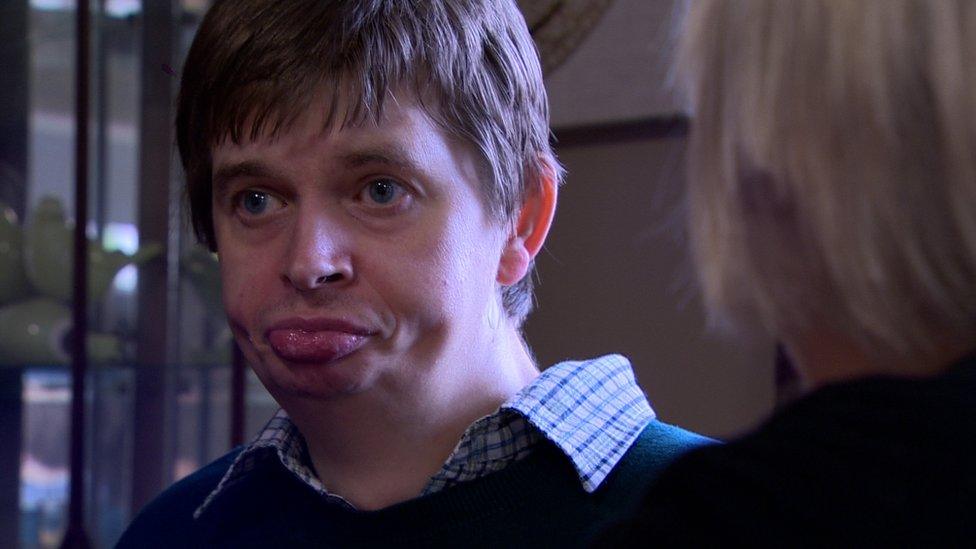
Graham Mackie, 35, spent seven years in hospital before finding his own home with support from the Positive Futures charity
In December, Permanent Health Secretary Richard Pengelly said he fully endorsed the view that "no-one should have to call Muckamore their home".
There are currently 66 patients in the hospital - according to the Belfast Trust all of them are capable of living in the community with the right support.
Ann Mackie said that while her son was safe during his years in Muckamore he was "like a bear in a cage".
"He was a young man and it was totally unsuitable, locking a young autistic man in with elderly men in an institutional environment. But we didn't have any options."
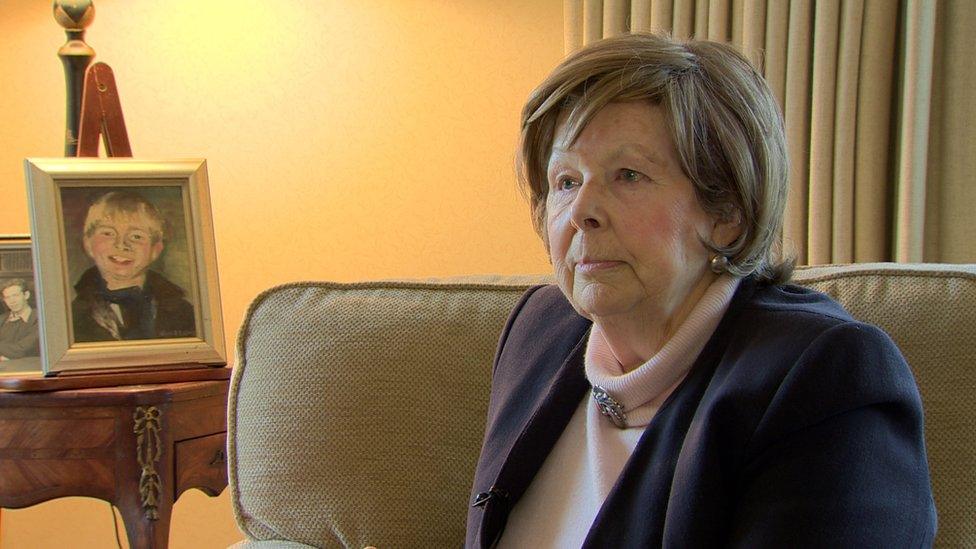
Ann Mackie said that Graham's move to his own home was a "wonderful transition"
Graham, from County Down, remained in the hospital until his family got in touch with the charity Positive Futures.
His mother described the move to his own home as a "wonderful transition".
"He started to laugh and smile, which we hadn't seen in many years. He had space in the garden - he was free."
She said he settled immediately and, when asked by Positive Futures to help outline Graham's hopes and dreams as he does not speak, she said he would like to drive a combine harvester.
"They said: 'Oh that's no problem'. There's not a lot of room in the garden but we'll find a farmer up the road!'"
'Awful lot happier'
In Graham's case, he and two others live under the same roof.
Their senior support worker is Alison Smyth, who said the day-to-day routine is much like everyone else's - cooking, watching TV or relaxing and heading out and about.
"Graham is an awful lot happier since he came in from Muckamore. It took a wee while but it's doable. He loves going to concerts in the civic centre.
"One guy in this house we support was in Muckamore for 40 years."
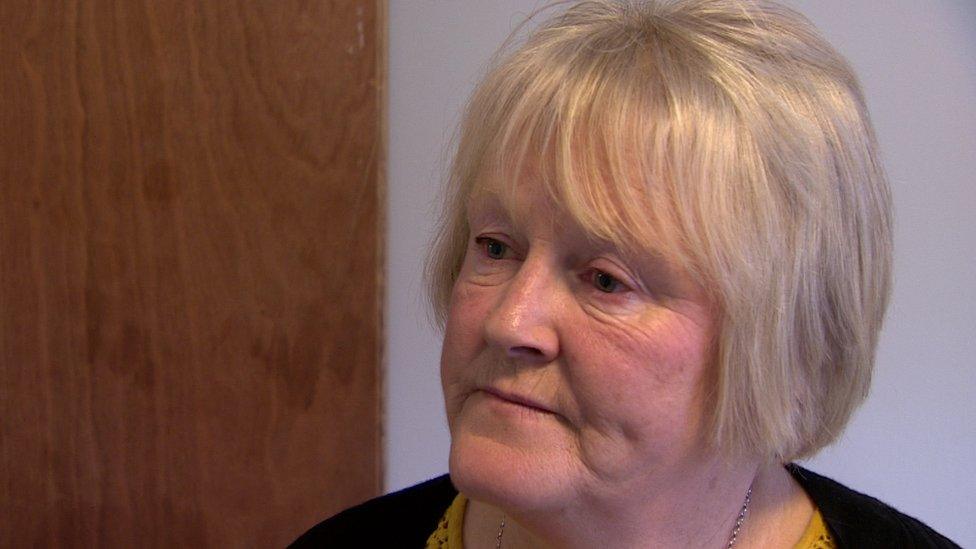
Alison Smyth supports Graham and other residents
Moving patients with learning disabilities or behavioural problems from long-term residential care is complex - and the right support has to be in place.
The Belfast Trust estimates the cost of a resettlement care package per patient as being up to £150,000 a year.
Agnes Lunny is the chief executive of Positive Futures, which provides supported living with financial help granted from the health and social care and housing budgets.
She said it is important everyone works in collaboration to ensure that by the end of 2019 no-one has to call Muckamore their home.
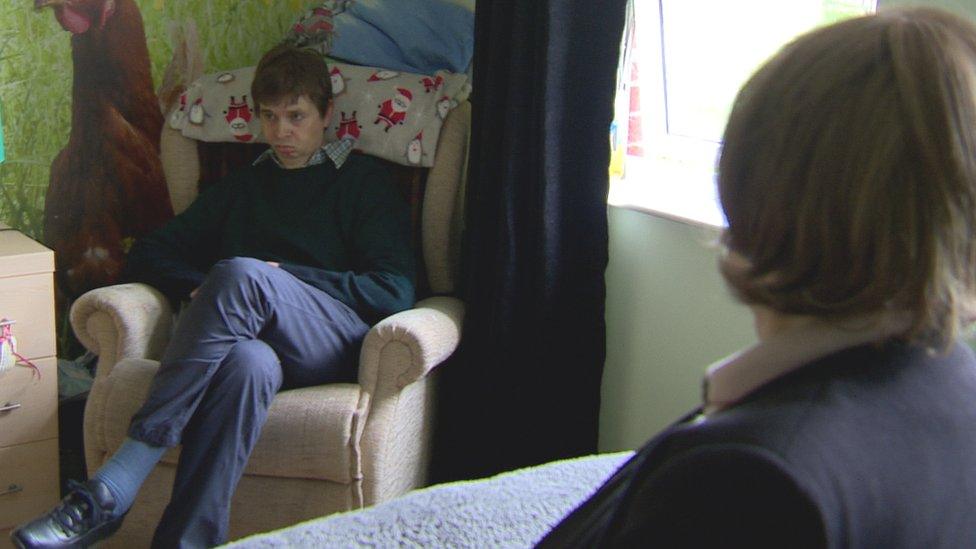
"My experience hasn't been particularly positive. I think, in some senses, the voluntary and community sector are seen as agitators.
"I think we need to work together to achieve this - I don't believe the expertise is in the department, I do believe it is is the community, their families, people who have done this.
"We need to remove from the equation professional arrogance because that has simply not worked to date."
The Belfast Trust said Graham's story of living independently was "truly uplifting and demonstrates that everyone with a learning disability and challenging behaviours can be supported to live ordinary lives in the community".
"In recent years, very many people have been successfully discharged from Muckamore Abbey Hospital and all trusts are working hard with provider organisations like Positive Futures to ensure that nobody has to live in a hospital environment," it added.
- Published18 January 2019

- Published10 December 2018

- Published20 December 2018
